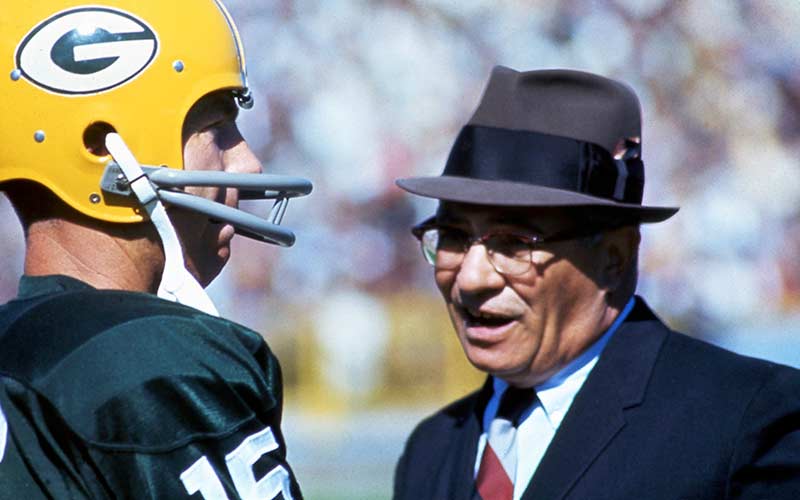Coaching Character
6/4/2017
Change was sweeping the streets of America as the 1950s drew to conclusion. The morality of our society was at a tipping point. Racial tension was high, the Cold War was escalating and many Americans were on edge.
It was at this time that a relatively unknown New York Giants’ offensive coordinator by the name of Vince Lombardi was hired to become the head coach and general manager of the Green Bay Packers. Imagine a man from Brooklyn, New York, who was already coaching his hometown football team, agreeing to coach a franchise in the National Football League’s smallest market.
Over the next nine years, as the leader of the Packers, Lombardi not only restored pride, passion and integrity to his football team, but to the community as well. During his tenure, Coach Lombardi taught America what the values of commitment, integrity, courage, respect and excellence could ultimately accomplish. In doing so, he helped propel the NFL into its golden era and establish the foundation of professionalism we see in the game today.

The legend of Lombardi began quietly on January 28, 1959. He took over a Green Bay franchise that had fallen on hard times and was coming off a 1-10-1 season. Lombardi ultimately achieved unparalleled success during time in Green Bay and restored the tradition of “Titletown, U.S.A.” He amassed an 89-29-4 regular season record, a 9-1 postseason record, three NFL championships and two Super Bowl victories.
Lombardi’s focus that first season was not on wins and losses nor was it on championships. Lombardi’s philosophy was simple. His lessons went further than the field, and that is why the legacy of his legend is living on today.
Lombardi left an impression on everyone he met from the football field to the conference room to American’s living rooms. During practice sessions, Lombardi could be seen teaching football fundamentals, while simultaneously preaching to his players the importance of dedication, love, passion and pride. Lombardi built his teams on the premise of selflessness and unity. He always surrounded himself with the right kind of people. He wanted high-spirited, disciplined, talented people willing to pay the price to succeed. Those were Lombardi’s kind of people. His teams were fueled by heart power. He loved his players, and in return, his players loved him.
Through raw human emotion Lombardi communicated to his players. Good or bad he never held back. He learned to use emotion to create the desired effect. He motivated, he led, and he taught through his passion, never concerning himself with what others thought about him. He was his own toughest critic, remaining disciplined and focused making sure to never let himself fail. He built character through action, teaching his players by example, and instilling confidence in everyone he met. Lombardi taught honesty. He never tried to emulate anybody else. He demanded players to find their own strengths and utilize them to keep moving forward at all times. Lombardi’s leadership did not rest on ability, his leadership was a combination of intangibles, it was a culmination of commitment, loyalty, pride, and discipline held together with relentless emotions. That is leadership and that is the character of Vince Lombardi, his work never ended because his job was more than coaching football it was teaching life lessons.
Lombardi not only had a tremendous influence on the game of football, but more important was his impact on the lives of others. Lombardi once said, “After the cheers have died down and the stadium is empty, after the headlines have been written, and after you are back in the quiet of your room and the championship ring has been placed on the dresser and all the pomp and fanfare have faded, the enduring thing that is left is the dedication to doing with our lives the very best we can to make the world a better place in which to live." These words should ring true not only for the players and coaches directly influenced by Lombardi on the football field but with everyone everywhere.
Go back to all blog listings

